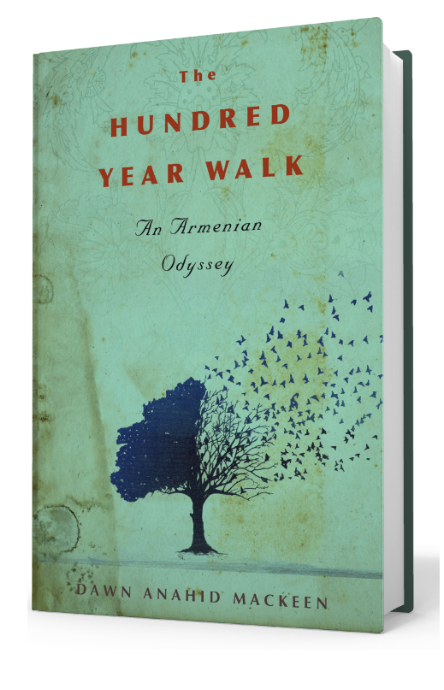Problems can be helped with conversation
Photo courtesy of Dawn Mackeen
book cover
September 26, 2017
Genocide is a word often associated with Nazi Germany and Hitler. Yet there have been others, one of which was highlighted during a Gen Ed 120 course taught by Dr. Molly Patterson, a course not likely to be forgotten by those who took it.
One of the required readings for the class was a book called “The Hundred Year Walk: An Armenian Odyssey.”
As the class read the book, a student posted to social media, commenting on how good the book was, and to the surprise of all, the author messaged her back.
The rest, as they say, is history.
Dawn Anahid Mackeen addressed University of Wisconsin- Whitewater students in Baker Tilly Hall the evening of Sept. 18. Members of the history department were also in attendance as Mackeen took the podium to discuss her book which tells a story in two parts.
The first is her grandfather, Stepan Miskjians story of survival in a genocide before the term was coined to describe the killing of a group of people on the basis of race.
Mackeen spoke of her journey to Turkey and Syria in her quest to tell a story few remember, but many lived. It is estimated that 1.5 million Armenians were killed between 1915 and 1923 as a direct result of the Turkish government’s genocide, yet so few people know it even happened, Mackeen seeks to change this.
The weight of Mackeen’s words settled over those gathered to hear her speak. There was a moment where she paused to read a passage, and the silence was a palpable one.
Continued with the book despite a language barrier and other roadblocks. People like us not knowing is the force that keeps her going, a will to tell of the terrors so many, including her own family, faced during World War I.
“So many problems can be helped with conversation, understanding and humanizing others.” Mackeen said.
The Turkish people are taught even now to deny the genocide, but that does not make them bad people, she says, they are just practicing what they have learned.
She tells the story of a taxi driver who invited Mackeen to a family wedding despite her telling of her being Armenian. This was significant to Mackeen, as she saw other instances of kindness by people in a country where so much sadness and death occurred a century ago.
This story is an account of a history nearly lost, written to make an unforgettable story of the Armenian Genocide.
MacKeen has changed the perception of various students on campus through her various of text.
Given the happenstance of the situation, it goes to showcase the power of social media and how reaching out towards a perceptional role model can do a great deal of positivity towards the college community.
To purchase the book, visit www.amazon.com for order information.













